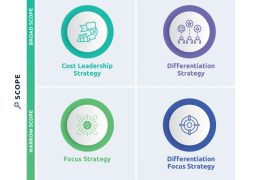In a competitive business landscape, executives and leaders face multifaceted challenges demanding technical expertise, exceptional leadership, and interpersonal skills. Many turn to the powerful executive coaching tool to navigate this complexity and excel in their roles. This article explores why executive coaching effectively fosters leadership growth, enhances performance, and drives organisational success.
Empowering Leaders for Excellence
Executive coaching is a tailor-made development program designed to empower leaders with the proficiency, skills, and strategies needed to excel in their roles. Unlike generic training programs, it takes a personalised approach, focusing on the specific needs and goals of the individual leader.
Enhancing Self-Awareness and Leadership Skills
One of the primary reasons this tool proves effective is its ability to enhance self-awareness. Leaders work closely with coaches to gain insights into their strengths, weaknesses, and blind spots. This heightened self-awareness becomes the foundation for building and refining leadership skills.
Driving Performance Improvement
Performance improvement is a central goal of this coaching. Leaders can significantly enhance their performance and productivity by identifying areas that require development and implementing targeted strategies. The result is personal growth and a positive impact on the organisation’s overall performance.
Navigating Complex Leadership Challenges
Modern leadership faces complex challenges, from managing diverse teams to making strategic decisions in a rapidly changing business environment. Executive coaching equips leaders with the tools and strategies to navigate these challenges effectively. It provides a confidential space for leaders to discuss and address critical issues, enabling them to make informed decisions and drive the organisation forward.
Facilitating Goal Achievement
Every leader has specific goals and aspirations related to career advancement, leadership effectiveness, or organisational impact. The training provided is a structured process that helps leaders define and achieve these goals. Coaches work collaboratively with leaders to set clear objectives and devise action plans to attain them.
Continuous Learning and Adaptation
Effective leadership demands continuous learning and adaptation. Executive coaching is an ongoing learning journey, allowing leaders to stay agile and responsive to evolving business landscapes. It fosters a growth mindset that encourages leaders to handle challenges as opportunities for learning and improvement.
Customised Feedback and Support
Executive coaching offers leaders customised feedback and support. Coaches provide constructive feedback, highlighting areas for improvement while also acknowledging achievements. This personalised approach ensures that leaders receive guidance relevant to their unique circumstances.
Fostering a Supportive Environment
Leaders often face isolation and high levels of stress in their roles. This tool offers a supportive and confidential environment where leaders can openly discuss their challenges, fears, and aspirations. This emotional support can enhance a leader’s well-being and effectiveness.
Measurable ROI for Organisations
This professional training is not just an investment in individual leaders; it also yields measurable returns for organisations. Studies have shown that organisations that invest in this coaching experience improved leadership effectiveness, employee engagement, and overall performance. This makes executive coaching a strategic tool for achieving organisational objectives.
Conclusion
In a competitive and dynamic business world, leadership excellence is non-negotiable. Executive coaching is an effective tool for nurturing leadership growth, enhancing performance, and driving organisational success. By empowering leaders with self-awareness, targeted skill development, and continuous learning, executive coaching equips them to excel in their roles and tackle complex challenges. Its impact extends beyond individuals, benefiting organisations through improved leadership effectiveness and measurable returns on investment. In an era where leadership is paramount, this tool emerges as a powerful catalyst for unlocking success.
Author: Salman Rahat


